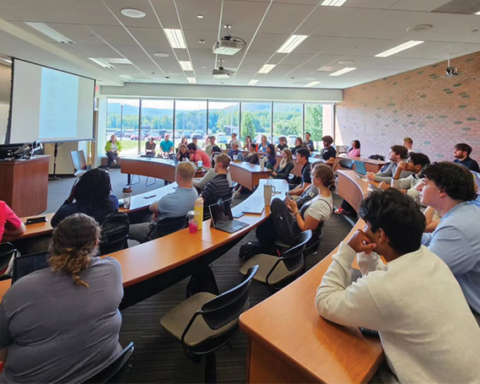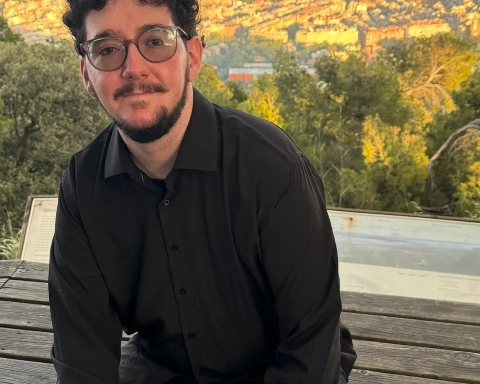The New York Health Act proposed a Medicare-For-All universal healthcare coverage bill, which has been approved by the New York State Assembly four years in a row before being stalled by the state senate.
Barbara Dyskant, a local advocate for the single-payer healthcare bill, spoke before the presentation and invitde the audience to have their voices heard either by sending letters to representatives or through outreach at the Cuba Cultural Center. She provided a sign-up sheet for those interested to get involved.
“As somebody who has had unpleasant experiences with the present healthcare system, as I’m sure many of us have, I’m working hard to see that we can get something better,” Dyskant said. “And it’s not going to be perfect, but the issue is will it be better and will there be room to approve it?”
Dr. Leonard Rodberg, professor of urban studies at CUNY Queens College, presented “Single-Payer Health Care: What is it, and Can We Afford It?” on Wednesday in the Walsh Auditorium at 7 p.m. The talk addressed concerns about the economic costs and benefits of creating a single-payer healthcare system through the New York Health Act Bill.
“Ninety-two percent of Americans agree we need affordable healthcare,” Rodberg said. “Reform is only the way we pay for healthcare, not the delivery of healthcare by nurses, doctors, dentists and medical professionals.”
Rodberg emphasized how in this bill, the term ‘healthcare reform’ refers to the payment of it that everyone can have access.
Rodberg then explained that while Obamacare has been beneficial, 1.2 million people are still uninsured, 37 percent of Americans are uninsured with rising deductibles, copays and coinsurance and the costs continue to rise. With this proposed healthcare plan, Rodberg said there will be better coverage at a lower cost.
“We’re trying in New York state to create the first universal healthcare system, for everyone to have access to healthcare,” Rodberg said. “Obamacare got Americans to believe it should be a right for everyone to have access to healthcare.”
Based on 2019 data taken by Healthcare Value Hub, 45 percent of adults experienced healthcare affordability burdens in the past year in upstate New York. This data also showed that 39 percent of upstate New York adults who needed healthcare delayed or skipped care because of cost, 25 percent struggled to pay medical bills and 45 percent of those uninsured cannot afford coverage.
The New York Health Act bill would make it so that a single state fund would cover every resident with comprehensive benefits, no deductibles or copays and no Medicare Part B and D premiums what are these premiums. The plan would be funded through public funds and progressive taxes and dedicated financing through New York Health Trust Fund, according to Rodberg.
“This would provide primary and preventive care; impatient and outpatient hospital care; prescription drugs; dental, vision and hearing care; long-term care; free choice of hospital and doctor and care coordinator to assist in navigating the system and receiving necessary care,” Rodberg said.
“Both the state and the country have a serious affordability problem,” Rodberg said. “It doesn’t have to be this way.”
He believes that the government has to oversee, regulate and sometimes fund healthcare.
“If you go to Canada, you don’t have to pay a penny to see a doctor. You walk in and the doctor says, ‘What’s wrong with you, not show me your insurance,’” Rodberg said. “And in Mexico, they have universal healthcare and we don’t.”
The St. Bonaventure University Visiting Scholars program, the school of health professions, department of political science, College Democrats and the Citizens Action Network of Southwestern New York sponsored Rodberg’s visit.

SBU Partners with Albi to Reduce Food Waste
A napkin container in the Hickey Dining Hall with info on Albi





